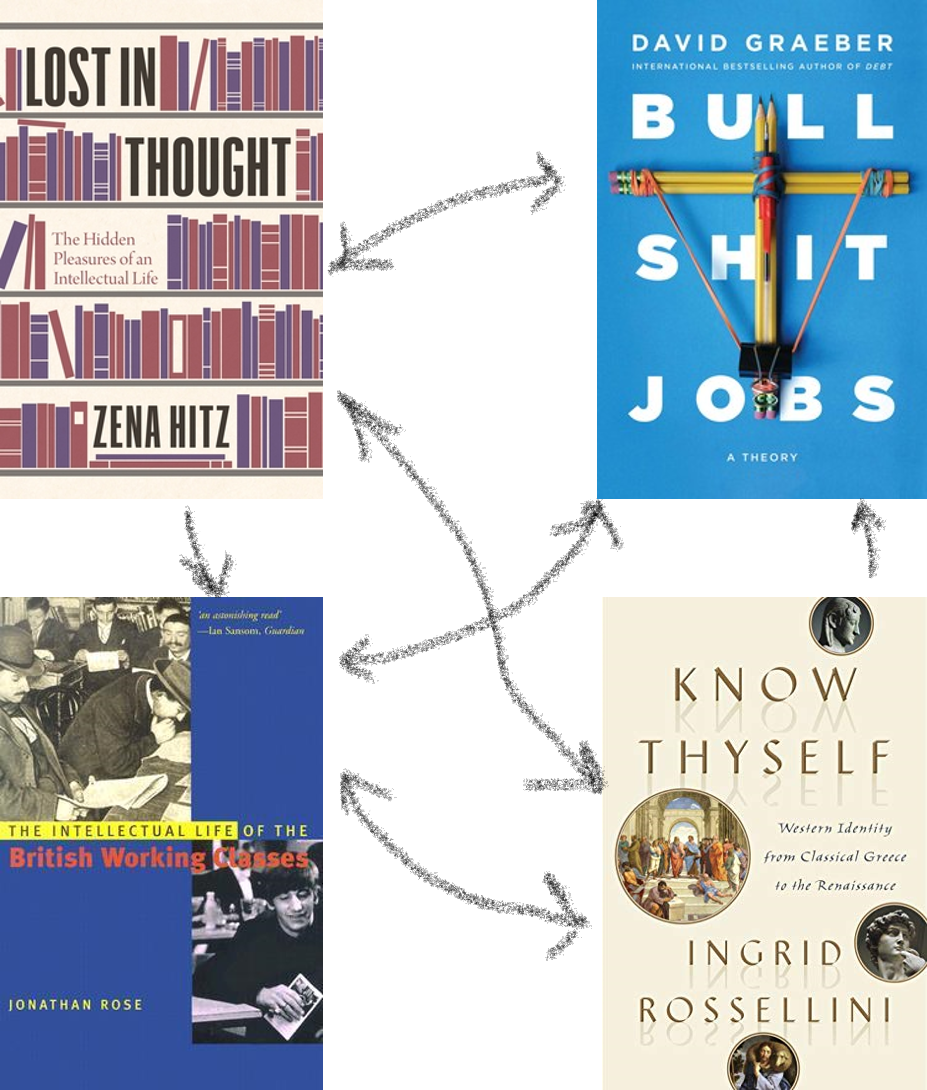A better part of my life has gone into reading scientific publications with at least three scores of references. Who knew the monotonous gig would one day become a useful thought exercise that happens spontaneously when I am engrossed in a good book? This week, four books conjured up like a constellation, connected by dotted lines, each having a relationship with one other but different when viewed separately. For some, they might be light-years away. But I find them aglow with the seamlessness of a Möbius. The Möbius has been a recent metaphor for me regarding connectedness. More on this in later issues. But for now, the strip has its place in the title banner.
These are not book reviews. I leave you with a shorter-than-blurb snippet of each book. There will be books I have not read but I excavate their importance from long-form reviews.
Lost in Thought by Zena Hitz is a wonderful book about the art of learning for its own sake. Can reading without an agenda be enriching for us? Are the problems in our collected psyche stem from the commoditization of everything?
Anthropologist David Graeber laments about this technologically morphed society in Bullshit Jobs. Stuck in a pointless job because the Sisyphean existence demands one? Many secretly think so. Consider what Zena Hitz states in Lost in Thought about Graeber’s study:
Other forms of work may have evident rewards in salary and status, but over the years can leave the stench of pretended usefulness.
A sprawling introductory book to rediscover the joys of learning is Know Thyself by Ingrid Rossellini. The pleasures of reading Aristotle or Aquinas or Cicero or even knowing their histories is a step towards embracing contemplation when most of life surrounds the pursuit of pleasures.
And finally, why should Cicero be confined to ivory towers and cloisters of academia? The Intellectual Life of the British Working Classes by Jonathan Rose is based on the memoirs of 19th- and 20th-century workers in Britain who devoured Shaw, Dickens, and Thackeray after factory hours. They were deeply involved in the intellectual climate of a rapidly industrializing society. It is an inspiration in the modern age where most of the reading hours are spent to bypass misinformation and if unaware, to be devoured by it.
I hope you find a connection in these reads. And if you think there are other books with similar notes, please leave a comment or email me.




“or even knowing their histories is a step towards embracing contemplation when most of life surrounds the pursuit of pleasures.”
Mixing history with science in “A Short History of Chemistry” is why I fell in love with Isaac Asimov's writing. Knowing the hardships of the people behind the inventions makes the knowledge that much more fascinating.
Regarding the pursuit of pleasure, “Amusing Ourselves to Death: Public Discourse in the Age of Show Business” by Neil Postman was a great read.
thank you for these recommendations ❤️